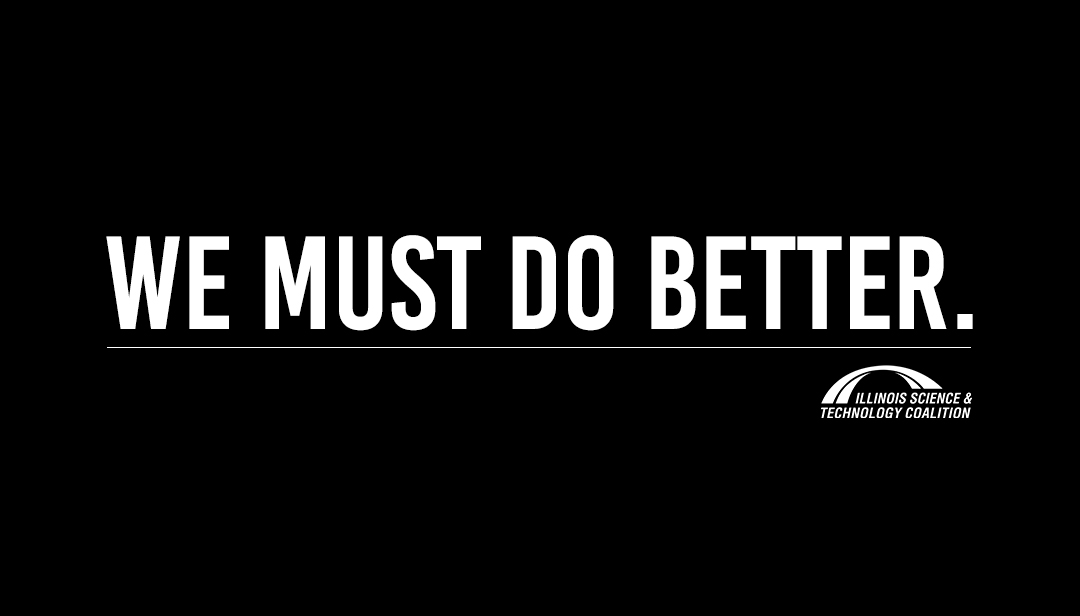As our nation comes to grips with the systemic racism that has plagued our society for generations, it seems only appropriate to take stock of where Illinois’ tech community stands—and how we must do better.
The numbers are grim.
African-Americans make up nearly 15 percent of Illinois’ population, but receive less than 6 percent of STEM degrees awarded in the state each year. In critical areas like computer science, the underrepresentation is truly shocking. In 2018, just over 3,500 four-year computer science degrees were awarded in Illinois. How many went to black students? 83.
You read that correctly: Just 83 black students received four-year computer science degrees from Illinois universities in 2018.
The numbers aren’t any better for Illinois’ workforce, where black professionals make up less than 5 percent of tech jobs. Tech’s most prominent fields are even less representative. In software development, less than 4 percent of professionals are black.
Progress isn’t encouraging either. Over the past five years, the share of STEM degrees awarded to black students in Illinois has actually fallen, while the share of black professionals in tech has held level.
“African-Americans make up nearly 15 percent of Illinois’ population, but receive less than 6 percent of STEM degrees awarded in the state each year.”
With all the focus on diversity and inclusion, how can this be the case? Where are the breakdowns in our education to workforce pipeline? The unfortunate answer is that breakdowns exist at every level.
Employers will tell you that they want to diversify their teams, but can’t find enough qualified candidates. Universities want to increase inclusion, but can’t find students that meet admissions standards. K-12 schools would like to add STEM curriculum, but can’t access adequate funding or attract qualified teachers.
“Tech’s most prominent fields are even less representative. In software development, less than 4 percent of professionals are black.”
We must do better.
Instead of focusing on feel-good initiatives and highlighting anecdotal success stories, we must take comprehensive action. Instead of focusing on programs that work around the edges, we must comprehensively reinvest in K-12 education that gives black students a fair shot at achieving their goals. Instead of waiting for students to reach campus, universities must provide resources and guidance to black students earlier in the pipeline, and build connections to community colleges already working in underserved communities. Instead of focusing solely on diversity among job candidates, employers must invest in programs that give talented black students a line-of-sight to tech careers.
And most of all, we must follow the lead of our black-led community organizations and nonprofits that have been working to fill these gaps for decades.
We must take these actions (and many more) not just for black communities, but for our entire tech community. If we want to make Illinois a top-tier tech hub, it’s going to take the talents of all our brightest minds, not just those fortunate enough to be included.

